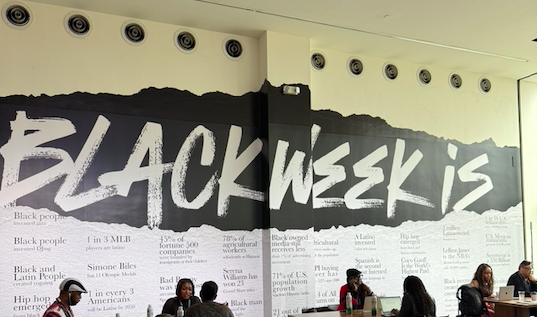The Hidden Cost of Job Loss: How The 300,000+ Black Women Impacted by Layoffs Can Manage Their Mental Health
How Black women impacted by workforce displacement can seek mental health support

Between February and April 2025, more than 300,000 Black women left the U.S. labor force, according to the U.S. Bureau Labor of Statistics. This marks one of the most dramatic employment declines for any demographic group in recent years. While the overall economy added jobs during this period, Black women's unemployment rate surged to 6.3% by July, the highest since October 2021 and nearly double the rate for white women at 3.1%.
The Root reported several factors contributing to this trend, including federal workforce reductions that disproportionately impacted Black women, who comprise 12% of federal employees. The nationwide rollback of diversity, equity, and inclusion initiatives in both public and private sectors further accelerated the bleed, with DEI job postings dropping 43% between 2022 and 2024.
And this financial burden has ripple effects. Redfin’s Chief Economist Daryl Fairweather, PhD shared in a LinkedIn post that this employment gap has a direct correlation with a recent drop in the Black homeownership rate.
What money problems do to the mind
Beyond the immediate financial strain, research shows that job loss carries significant mental health consequences. Studies published in Frontiers in Public Health indicate that unemployment can be associated with elevated depression, anxiety, and psychological distress. The American Psychological Association notes that job loss creates stress-related reactions that can damage mental health, particularly when unemployment extends beyond several months.
Now, with compounding factors like artificial intelligence and global geopolitical conflicts, the economic conditions are looking grim for job seekers across the board. But especially, for Black women who were already shouldering the weight of earnings inequality.
Community-led layoff resources
Amidst these challenges, how can Black women stay resilient? How can they juggle the financial burden of a layoff with the mental toll of losing daily social interactions, professional relationships, and a predictable routine? We’ve compiled a list of resources specifically created to help Black women sustain themselves, both financially and emotionally, during this time.
1. Prioritize mental health support: Seek counseling through community health centers, employee assistance programs if recently laid off, or affordable therapy options:
- The Loveland Foundation: Apply for financial assistance from this fund specifically created to cover the cost of 4-12 therapy sessions for Black women
- Heart Space by BEAM: A healing circle and peer support program hosted by a revolving roster of Black mental health professionals held every month in person in Atlanta, GA and Los Angeles CA, as well as virtually
- Sista Afya Thrive in Therapy: Illinois residents can complete the form to be connected with sliding scale therapy options
- Therapy Fund Foundation: Offers Washington state residents the opportunity to apply for therapy assistance
- MusiCares: Provides mental health assistance, preventive care, recovery resources, and need-based financial assistance for people across all music professions
2. Build and maintain your network: Stay connected with professional associations, industry groups, and trusted peers who can provide emotional support, job leads, and remind you of your value beyond employment status. Tap into these in-person or virtual networking opportunities for Black women impacted by recent layoffs:
- The 300K Network: Join this community to connect with other Black women recently impacted by layoffs and gain career and emotional support
- Blackweek: Use code “WMN25” for a 25% discount off the 2025 conference ticket
- National Association of Black Journalists C.A.R.E.S.: Submit a professional profile if you’re a journalist in search of your next gig to be connected to job opportunities
- Virtual Black Women Coworking Sign Up: Complete this form to get connected to weekly virtual coworking sessions so that you don’t have to research and apply for jobs in solitude
- Black Women Rising: A WhatApp referral networking group for Black women impacted by layoffs. It is currently private due to overwhelming demand, but follow @nneka_obiekwe_ to learn when it will be reopened.
3. Access financial resources strategically: Explore unemployment benefits, SNAP assistance, and funds from these organizations providing emergency financial support for Black women and girls:
- Global State of Women Collective Relief Fund: Apply for a one-time award between $500 and $1,500
Before diving into the resources above, which take effort to research, apply for, and engage with, remember that an unexpected layoff is a significant hardship, and you should extend yourself grace. One expert recommends giving yourself the space to be angry, sad, or any other emotion that naturally arises and sit with it. And when you’re ready, take advantage of aid from your community or the resources above, and lean into the skills that got you that previous role in the first place.
.png)





